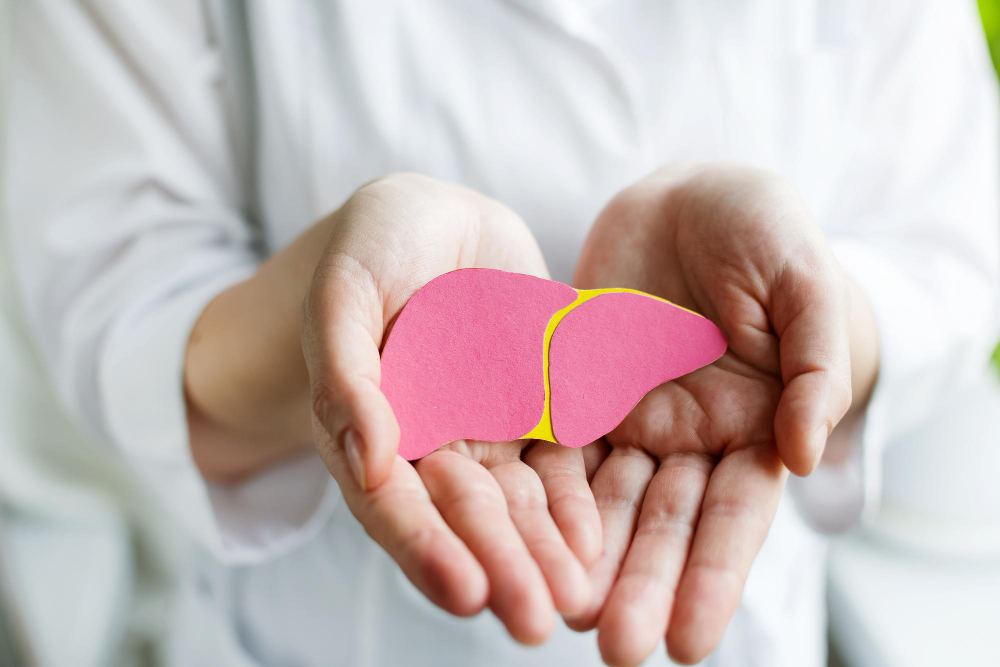Alcoholic hepatitis is a serious liver condition caused by drinking too much alcohol for a long time. Too much alcohol hurts the liver, impacting your health and well-being. The liver is a vital organ that helps cleanse the blood and fight infections. When you drink too much, it can’t perform these jobs well.
In this blog, we will explore:
- What alcoholic hepatitis symptoms look like.
- Why alcohol leads to this condition.
- How the condition is treated.
By the end, you’ll have a clearer picture of understanding alcoholic hepatitis and its impact.
Identifying Alcoholic Hepatitis: Symptoms and Causes
Let’s start with the alcoholic hepatitis symptoms. These include:
- Yellowing skin and eyes, called jaundice.
- Feeling tired all the time.
- Not feeling hungry.
- A swollen belly full of fluid.
- Feeling sick or throwing up.
These symptoms can be bothersome. They might come slowly or suddenly hit you all at once.
The main culprit is heavy, ongoing use of alcohol. The body breaks down alcohol into harmful substances. If you drink too much for too long, these substances hurt your liver. This is why alcohol-related liver damage happens. Besides alcohol, other factors matter too. Some people have genes that make them more likely to get alcoholic liver disease. Not eating well can also lead to more liver problems. Poor nutrition makes the liver even weaker.
Understanding and avoiding these liver inflammation causes can help keep us healthy. By being mindful of how much and how often we drink, we can avoid the harm that alcohol can cause. Always remember, knowing what might trigger alcoholic hepatitis means you’re in a better position to prevent it.
Diagnosing and Treating Alcoholic Hepatitis
Knowing when something is wrong is vital. Alcoholic hepatitis diagnosis involves checking your symptoms and doing some tests.
- Medical History Check: Doctors will ask questions about your drinking habits. They will also ask about how you’ve been feeling.
- Laboratory Tests: Blood tests show doctors how well your liver is working. They help reveal if alcohol-related liver damage has happened.
Once alcoholic hepatitis diagnosis is definite, the next step is treatment.
- Stop Drinking Immediately: It’s crucial to stop drinking right away. Alcohol doesn’t just make the liver worse; it stops it from healing.
- Detoxification: This process involves clearing alcohol out of your system. It helps your body start its healing journey.
- Supportive Care: Doctors may give you fluids and nutrients. This care helps your body work better.
- Medications: If things are severe, doctors might suggest medicines. These help reduce swelling and liver damage.
- Possible Hospitalization: In many cases, being in a hospital is essential. This setting can offer the best care.
Healing doesn’t stop once you’re out of the hospital. Continuing recovery means:
- Lifestyle Changes: Eat better, exercise, and rest well.
- Ongoing Medical Follow-up: Regular doctor visits are a must. They help monitor progress and catch any new issues early.
Recovery might take time, but with these steps, it’s possible to live healthier and better.
Preventing and Living With Alcoholic Hepatitis
Prevention is much better than cure. To keep away from alcoholic hepatitis, try these tips:
- Drink in Moderation: It’s best to keep alcohol drinking in check.
- Eat a Balanced Diet: A good diet helps keep the liver healthy. Ensure you consume plenty of veggies, fruits, and proteins.
- Exercise Regularly: Keeping active helps your liver and your whole body.
If you’re having trouble with alcohol, support is crucial.
- Family Support: Loved ones make a big difference in recovery.
- Counseling: Guidance can be beneficial for getting over drinking issues.
The pathway to alcoholic hepatitis recovery includes nourishing your body.
- Diet for Alcoholic Hepatitis: Focus on foods that support liver health. Fiber-rich foods and healthy fats do wonders.
Also, don’t forget to tap into extra help:
- Support Groups: Groups like Alcoholics Anonymous offer understanding and friendship. They help because you’re not alone in your journey.
In summary, maintaining a healthy lifestyle is vital for alcoholic hepatitis prevention. Support systems and self-care are key in recovering and living well with this liver condition. By being aware and taking steps, you can protect your liver and enjoy better health.



